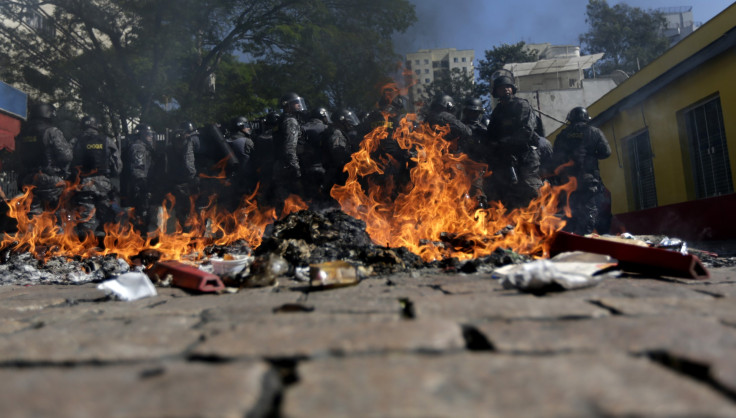
AFP reports that Brazilian police in the city of São Paolo broke up a protest against the World Cup on Thursday hours before the opening game was set to begin, using tear gas, rubber bullets and stun grenades to disperse about 50 protesters carrying a banner reading, “If we don’t have our rights, there will be no Cup.” Police had halted them shortly after they set off toward Corinthians Arena (about 8 miles from the scene) where Brazil will face off against Croatia. One protester was arrested and two CNN journalists reporting from the scene were injured by tear gas canisters.
BBC News reports that police arrived after the protesters blocked a road leading to the stadium, which they were attempting to reach, and refused to clear the road. One 27-year-old student who participated in the protests told AFP that they had aimed to bring a halt to the World Cup. “We realize that we won’t be able to, but we believe that Brazilians must rise up,” he said. “Brazilians love football but they don’t need this now.” That sentiment has become a common one in this year’s host country, where as many as 1 million assembled during last year’s Confederations Cup to protest the soaring costs associated with the event -- money which the majority of the public says could have been allotted to services like schooling and healthcare.
Human rights watchdog Amnesty International warned Brazilian security forces in a statement last week against a heavy-handed response to protests occurring during the games, calling it a “crucial test” of authorities’ willingness to protect the human rights of demonstrators. An earlier report denounced what it called the “indiscriminate use of tear gas and rubber bullets” among other tactics designed to intimidate and punish peaceful protesters. “Brazil should ensure that individuals and groups are able to participate freely in public protests, and that, if faced with violence, police and other security forces limit the use of force to the minimum necessary,” it said.
© 2025 Latin Times. All rights reserved. Do not reproduce without permission.





